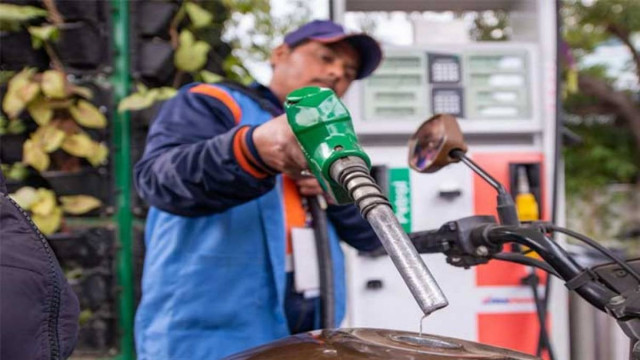Petrol price hiked for 2nd time in April
Govt says prices increased in view of rising prices in international market

The federal government raised the prices of petroleum products by up to Rs8.14 per liter on Monday due to fluctuations in global oil prices. The new prices will take effect from today, April 16. This marks the second price hike in petroleum products this month.
According to a notification, the price of petrol has been raised by Rs4.53 per liter, from Rs289.41 to Rs293.94 per liter. The price of high-speed diesel (HSD) has also been increased by Rs8.14 per liter, from Rs282.24 to Rs290.38 per litre.
Earlier, the government raised the price of petrol by Rs9.66 per liter on April 1. However, it reduced the price of HSD by Rs3.32 per liter for the first half of the month, effective from April 1 to 15.
Petrol is predominantly used in motorbikes and cars, with higher usage in Punjab due to CNG stations in the province relying on expensive imported gas rather than indigenous gas.
HSD finds extensive use in the transport and agriculture sectors. Therefore, the decision to increase its price is expected to have an inflationary impact on farmers and the general populace.
Read more: Petrol price expected to rise by Rs10/litre in April
In a statement, the Ministry of Finance cited an increasing trend in international oil prices over the last fortnight as the reason for the price adjustment. It noted that the Oil and Gas Regulatory Authority (OGRA) calculated consumer prices based on international market variations.
Presently, the government imposes a petroleum levy (PL) of Rs60 per liter on almost all petroleum products. The International Monetary Fund (IMF) is urging the government to levy a general sales tax (GST) of Rs18 per liter on petroleum products.
Currently, there is no GST on petroleum products. If implemented, this GST imposition would lead to further price hikes in the coming months.
The federal government strategically increased the petroleum levy rate as revenue collected through this levy goes to the federal treasury, while sales tax revenue goes to the provinces. Consequently, the sales tax rate has been reduced to zero to limit provincial revenue collection.
Oil and electricity consumers are seen as easy targets for taxation, with the government preferring to levy higher taxes on them rather than expanding the tax net.
Consumers may face increased taxes in the upcoming budget due to IMF pressure. There are indications that the government may raise the petroleum levy rate in the forthcoming budget to bolster revenue collection from oil consumers.



















COMMENTS
Comments are moderated and generally will be posted if they are on-topic and not abusive.
For more information, please see our Comments FAQ